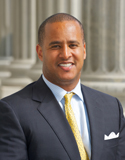
By Lindsay Street, Statehouse correspondent | As government coffers grow in the rebounded economy, one state lawmaker wants a task force created to evaluate spending — a move she says could divert state funds into other needed reforms, such as education.
“When the economy is doing well and the state is doing well, the state’s growing … what tends to happen is that as our revenues increase, our spending increases,” Moncks Corner Republican Rep. Sylleste Davis told Statehouse Report.

In January, Davis introduced H. 3224, a bill described as the “South Carolina Government Efficiency Act.” It has been referred to the House Judiciary Committee and has yet to be scheduled for its special laws subcommittee.
Davis said her bill aims to answer these questions:
“Are we spending the taxpayer money on the right things? And I think that the only way to figure that out is to on a periodic basis go through all the agencies that receive taxpayer funds and figure out are these agencies operating as efficiently as possible, are they collaborating with other agencies to be efficient, and are they making a concerted effort on a regular basis to reduce the cost of government?”
A proposed 15-member task force would be comprised of lawmakers, business leaders and state agency leaders.
Any money saved could go to state needs, such as education reform, or it could be returned to taxpayers, Davis said.
“Either way is good. And, in some cases, you don’t really know the best way to spend the money because we haven’t really done a lot of housecleaning.”
Davis said while House budget writers take state agency budget requests annually to help build the state budget, those efforts are not focused on efficiency and baseline services.
Following in the footsteps of others
The idea proposed by Davis for South Carolina isn’t novel or very new. More than a decade ago, Gov. Mark Sanford pushed for performance evaluations of state government.
![]() Through the years, a handful of other states have some form of government-efficiency oversight. In Texas, for example, a Legislative Budget Board has appeared in the state in various forms since the 1970s. The board provides a “system of performance audits and evaluations intended to provide a comprehensive and continuing review of the programs and operations of each state institution, department, agency, or commission,” according to spokesman R.J. DeSilva.
Through the years, a handful of other states have some form of government-efficiency oversight. In Texas, for example, a Legislative Budget Board has appeared in the state in various forms since the 1970s. The board provides a “system of performance audits and evaluations intended to provide a comprehensive and continuing review of the programs and operations of each state institution, department, agency, or commission,” according to spokesman R.J. DeSilva.
Findings from these Texan performance reviews and related policy analyses provide information and options for statutory or budgetary changes. DeSilva offered these examples:
- In 2017, 52 performance reviews and evaluations were provided to the Texas legislature, 32 of which included options for statutory or budgetary changes. The legislature acted upon options identified in 16 of the 32 reports that included options.
- In 2013, the legislature incorporated analysis from reports in the budget bill and 22 other pieces of enacted legislation. The fiscal impact of these was estimated to be a net cost savings of $17 million in General Revenue Funds.
![]() Davis said her proposal was based on the Florida Government Efficiency Task Force, which was established in 2007.
Davis said her proposal was based on the Florida Government Efficiency Task Force, which was established in 2007.
“That’s kind of where I started,” Davis said. “I googled ‘state government efficiency’ and Florida popped up.”
Its 15-person task force meets every fourth year and submits recommendations to the chairman and vice chairman of the Legislative Budget Commission, the governor, and the chief justice of the Supreme Court. According to the task force’s documents, the goal is to achieve more than $3 billion in savings over four years.
Legislative and gubernatorial staff in South Carolina were unfamiliar with other similar program enacted in South Carolina, with the exception of one: The Governor Efficiency and Accountability Review (GEAR) Commission under then-Gov. Mark Sanford.
The gubernatorial commission regularly reviewed state agencies and helped Sanford develop a restructuring plan that then became part of his executive budget every year. In his 2011 proposed executive budget, Sanford urged lawmakers to follow through with GEAR’s recommendations to help streamline government:
“To date, only 16 out of the 61 of the GEAR Committee’s recommendations have been adopted, which means that the General Assembly has ample opportunity to obtain cost savings without cutting essential governmental services by adopting the remainder of the recommendations,” the 2011 executive budget stated.
Proposal seeks more support, key figures learning about it
[updated] Davis said she has met with the Republican governor on the bill and that he was “on board with it.” Gov. Henry McMaster’s spokesman, Brian Symmes, did not return requests for comment prior to publication. After the story was published, however, Symmes said the governor “supports any effort to make state government more efficient and more effective for the people of the state.” Late last month, Davis picked up an additional sponsor, but the bill remains backed solely by Republicans: Reps. William Scott Cogswell of Charleston and Anne J. Thayer of Anderson.
House Majority Leader Gary Simrill, R-York, did not respond to requests seeking comment on the bill. House Speaker Pro Tempore Tommy Pope, R-York, said he was not familiar with the bill.

House Minority Leader Todd Rutherford, D-Richland, also said he was not familiar with the bill or such task forces. He said, however, that he doubted state agencies had much fat to trim.
“I don’t think the government is operating in an inefficient place now,” Rutherford told Statehouse Report. “If I had to critique how South Carolina has spent our money, it is that we have exempted too many things and we don’t take in enough.”
Rutherford agreed with Davis that using any money saved by such a task force should be put toward something like education reform.
“There are needs that South Carolina has that we got to meet that we currently are not,” he said.
- Have a comment? Send to: feedback@statehousereport.com
















 We Can Do Better, South Carolina!
We Can Do Better, South Carolina!
The largest contribution the task force can make is evaluating and upgrading the managements systems of the agency (outcome, impact effectiveness, efficiency measures and standards)and the resources (people, money, technical) needed to improve sustained agency performance. Don’t just fix, declare success and walk away. Hint: SC does not have performance systems. We govern by complaint. That is why our elected officials spend too much time addressing constituent complaints to curry favor and stay in control as this legislation will have the effect of doing. If you want to improve agency managements change how the selection its done by having subject matter experts of the agency’s content and policy domain vet as “qualifies” managerial candidates. If you want to improve performance keep your friends, cousins, etc. out of these jobs.